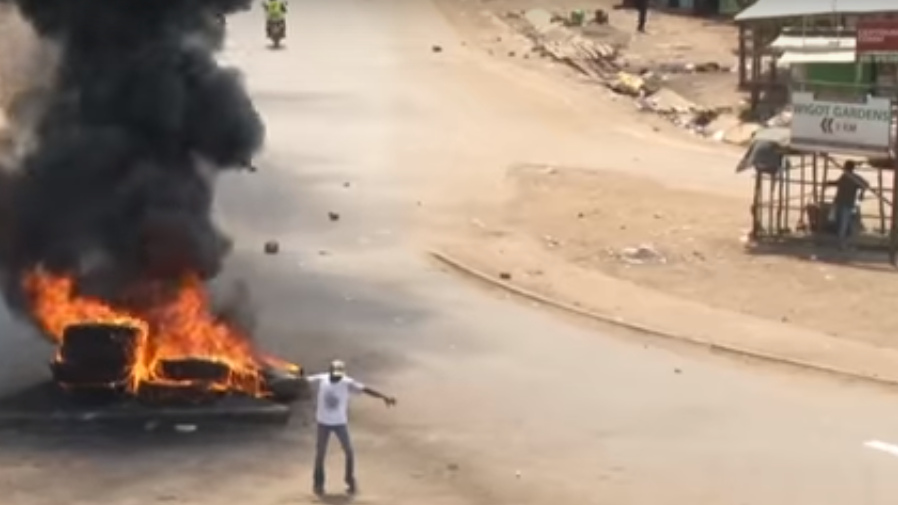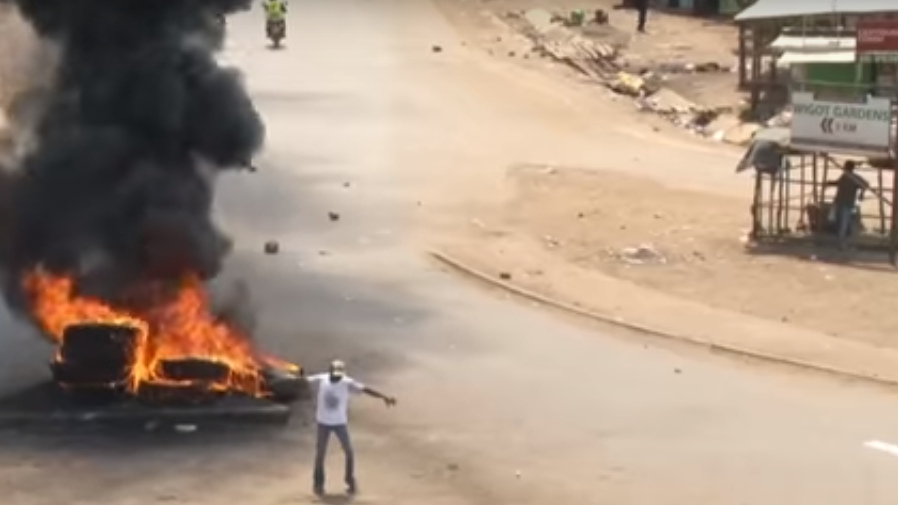This year’s elections have been peaceful, but there are claims and counter claims regarding the results.
From the day leading up to elections, companies reduced operations or shut down temporarily to allow staff to go to their rural homes to vote. The concerns about safety played a large part in convincing companies to reduce operations. Some companies went as far as to make arrangements to airlift their staff out of conflict zones in case of violence.
Better than 2007-2008
With all the tension, the country is in remarkably better shape than it was after the 2007-2008 elections where the violence was widespread with many fatalities.
The cloud of the International Criminal Court hangs above politicians, so they have been careful to avoid stoking the already charged environment with provocative speech.
Contested results
Many businesses remain closed in parts of Nairobi, Kisumu and other major towns throughout the country.
The current president, Uhuru Kenyatta, has won a second and final term in office. He has 55% of the vote; his closest and main rival is at 44%.
The opposition is bitterly contesting the results. The opposition, under the NASA coalition flag, has raised many claims of rigging, arguing that the vote tallying is not fair.
Speaking before the announcement of the results, Musalia Mudavadi, a key leader of the opposition said “The issues we raised have not been adequately addressed. One can conclude that they (The Independent Electoral and Boundaries Commission-IEBC) were not keen on taking our concerns seriously.”
The IEBC has shown willingness to listen to the opposition, without giving in to most of its demands.
Mixed reactions
As soon as the results were announced around 10 pm on the 12th of August, the country exploded into instant celebrations and protests.
Soon gunshots were reported in Kisumu, and protests took place in Siaya, Homabay, and parts of Nairobi. Some shops were looted and roads blocked.
In other parts of the country, celebrations went on into the night as crowds thronged the streets of Eldoret, Nakuru, and parts of Nairobi to celebrate Uhuru Kenyatta’s win.
Casualties
Sadly, there have been casualties. Three people were killed during the night while celebrating the results. One was run over by a lorry and two by cars.
Protesters too, suffered, at the hands of the police, with one confirmed dead and various reports of other protesters killed by shooting. The protests subsided in the night only to resume in the morning on 13th of August continuing well through the day with police trying to keep the situation in control.
Police claim that some of these protesters were robbing people under the guise of protesting the results.

Fears in the business community
While small scale businesses stopped stocking supplies in the run up to the election, concerns were evident from the beginning of the year.
There have been signs of economic slowdown even before the campaign due to a reluctance by investors to commit to long term projects due to the potential political unrest.
The Kenya National Bureau of Statistics shows that the GDP growth was slower by 1.2 % in the first four months of the year. Trading at the Nairobi Stock Exchange was healthy in the months running up to the election, sometimes doing well. One day after the election trading fell by over 30%.
Since the day of the election, businesses have been for the most part closed. In the major cities like Nairobi, Mombasa, and Kisumu, the streets were unusually scant of traffic. Banking halls remained open with few or no customers walking in.
Many of the people who had traveled to their rural homes have not yet returned to the city, so most companies are yet to resume full operations five days after elections.
Some businesses have suspended any activities till the tension subsides. The Matatu Owners Association, which is a union of public transport providers pleaded with people to go back to work on 10th of August. Of the 20000 buses that provide transportation in the city, only 2000 were in operation.
Various business groups in other towns have also urged people to resume their activities, but the tense mood in the country means that they might have to wait till the impasse over the election results ends.
Cause of tension
Kenya is unique because ethnic politics are prevalent. All the presidents since independence have come from two of the larger ethnic groups.
There are over five major ethnic groups and over 40 tribes in the country. The two major parties contesting in this election were composed of different formidable ethnic alliances.
Politicians enjoy almost fanatical following and can use their powers to stoke the brimming tribal animosity as a result of poverty, marginalization and sometimes propaganda.
The current tension is because of claims that the vote tallying was fraudulent.
Hope
There is a widespread optimism that it will be business as usual in the week after the elections.
The recovery might take longer, with parts of the country peaceful and resume business slowly while others are still crippled by violent protests.
For now, business is not resuming at the rate Kenyans want.

